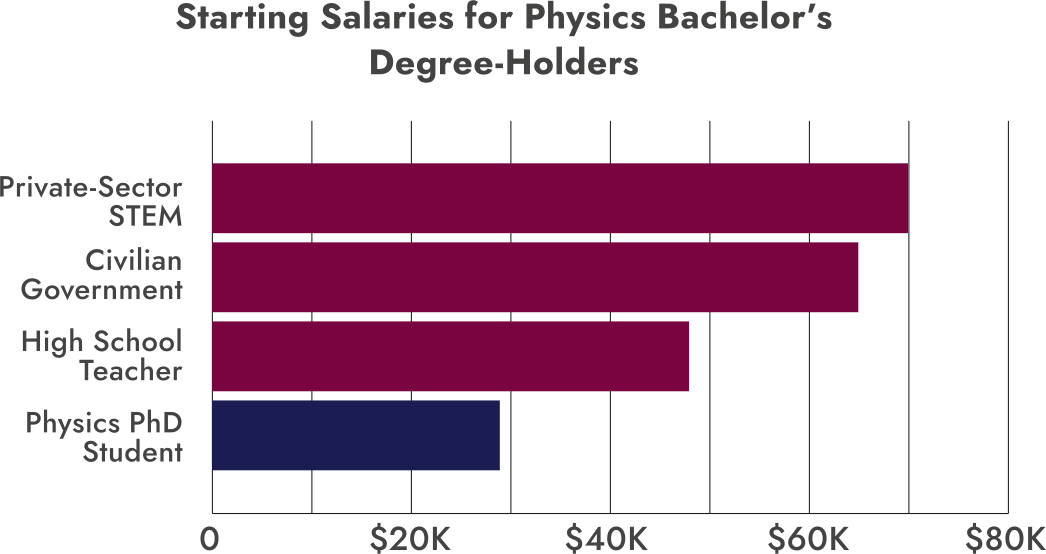Ensuring Our Future STEM Workforce: Competitive Compensation for Grad Students and Postdocs
Members of Congress should support the RESEARCHER Act (H.R.4002) and the subsequent necessary appropriations for federal science agencies.
More than Coursework
Graduate students are not just passively learning. A graduate degree involves conducting novel research, requiring full-time work either in the lab, field, or classroom. Graduate students and postdocs are a critical part of the U.S. R&D workforce.
![]()
Averting a Workforce Crisis
Inaction will exacerbate STEM worker shortages.
“The growth rate of employment in STEM fields is projected to expand significantly—specifically, by 10.8 percent through 2032, compared to 2.8 percent for all occupations.”
For the semiconductor industry alone, [the] projected total gap [is] approximately 17,000 master’s and PhD engineers by the end of the decade.”
— Semiconductor Industry Association - Chipping Away, 2023
We are very concerned about the future of our graduate program if we cannot provide a competitive stipend.
– U.S. Physics Department Chair
Student Salary: Grad School Is Not Competitive
While graduate students are receiving an education, current stipend rates are a deterrent for pursuing an advanced STEM degree.

Median annual stipend of 1st year grad students of U.S. PhD-granting physics departments vs. median starting salaries of U.S. physics bachelor's degree-holders
Source: American Institute of Physics
Federal Agencies Play a Critical Role
At U.S. PhD-granting physics departments, more than half of graduate students are supported through federal research awards and fellowships.
Standard research grants have barely budged in 20 years. What once could sustain 2-3 students now supports one or fewer.
The RESEARCHER Act Is a Step in the Right Direction
The RESEARCHER Act will help address competitive compensation issues by authorizing data collection and directing the Office of Science and Technology Policy (OSTP) to establish uniform guidelines for federal science agencies. These agencies will then be mandated to develop and implement policies based on OSTP’s guidance, which will also require appropriately augmented appropriations to achieve.